Pricing your building or renovation project Image courtesy of Stuart Miles at FreeDigitalPhotos.net3 Image courtesy of Stuart Miles at FreeDigitalPhotos.net3 It's always good practice to get quotations from several contractors (preferably at least 3) for your building work. Prices for the same work can vary hugely. A contractor who has lots of work might be too busy for your building project but they'll still submit a price which is then usually very high. They'll reason that they don't really need your work but if you're prepared to pay there enormous price it will be worth their while to squeeze your project into their schedule since they'll make lots of money if you agree to their inflated price. Frequently contractors make errors and their price could be mistakenly higher or lower than it should be. So obtaining at least 3 prices means that you should have a good spread of prices and be able to compare and check them. Not all building prices are what they seem so don't be caught outAll quotations (prices) must be in writing. Once the tenders, or quotations, have been received for your building work they must be carefully adjudicated (checked) ensuring that ‘apples are being compared with apples’, like with like. It’s important not to just look at the total price, but rather consider the whole price submission. Not all prices or quotations are equal, so it pays to check:
Is your contractor's price too low Image courtesy of Stuart Miles at FreeDigitalPhotos.net Image courtesy of Stuart Miles at FreeDigitalPhotos.net This may seem a strange question? Something that’s often not done is to ensure that the price is fair and achievable. Sometimes contractors make a mistake with their price, or the contractor is inexperienced and doesn’t understand the project fully, so they submit a price which is too cheap. Be wary of prices that are much cheaper than other prices. You shouldn’t become focused on a ‘bargain price’ and award the project to a contractor who then loses money. A contractor that’s losing money will try and save costs, possibly using inferior quality building materials and putting too few resources on the project. In addition, they’ll probably do anything to try and recoup their costs, which could include lodging additional variation claims, some of which may be spurious, which will waste your time to argue them, even incurring you additional costs to engage experts to fight the claims through the legal system. Contractors that lose money may become bankrupt or insolvent part way through the project, leaving you with an unfinished house. But, just because a price appears cheap shouldn’t be reason to discard it, rather be cautious and understand why the price is low – for instance, the contractor may propose using innovative construction solutions which will give you the product you’re looking for at a cheaper price. Conclusion - it pays to carefully review all prices you receiveBy carefully checking the prices you receive for your home building project you can ensure there are no hidden traps and pitfalls which might cause you to pay more for the work than you were expecting, or more than you would have paid if you selected another contractor. It's important to know what you'll be getting for your money. Always remember to never be swayed by price alone. The cheapest price might not be the cheapest price at the end of the day and the cheapest contractor might not deliver your desired home hassle free. 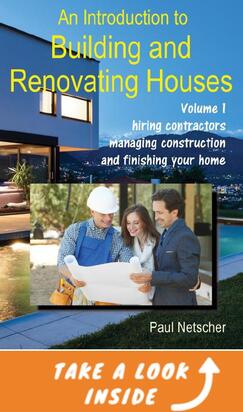 This is an extract from my new book 'An Introduction to Building and Renovating Houses: Volume 1 Hiring Contractors, Managing Construction and Finishing Your Home' which also contains lots more valuable information to save you money and ensure that your home build or renovation project is a success. Click on the image to read a preview on Amazon. The book is available in paper or ebook form from Amazon and other online stores, or ask your local bookstore to order a copy for you. For tips on designing your new house as well as renovation ideas read Volume 2 - Finding Your Ideal Property and Designing Your Dream Home © 2019 This article is not to be reproduced for commercial purposes without written permission from the author.
1 Comment
Are there alternatives to air-conditioning? Image courtesy of Good-start at FreeDigitalPhotos.net Image courtesy of Good-start at FreeDigitalPhotos.net As global summer temperatures rise, more buildings are installing energy-hungry air conditioners – a major contributor to climate change. But are there ways to cool buildings down without turning the AC on? Read this interesting article from the BBC For more home design tips and insights read An Introduction to Building and Renovating Houses Volume 2 - Finding Your Ideal Property and Designing Your Dream Home
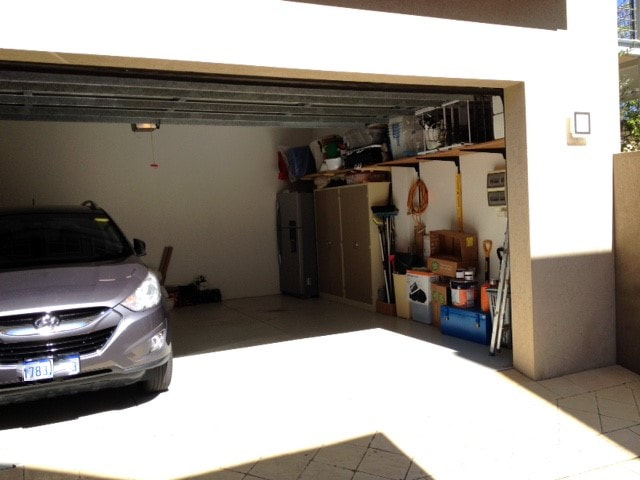 Do you require garages for your cars? How many vehicles? What size – length, width and height? Do you need the garage for other purposes – such as hobbies (maybe you’re often working on your cars, or you do woodworking)? Does the garage need to be secure? The advantages of including a garage in your home designGarages are an added expense. But they can:
Designing a new home with a garage - what you should consider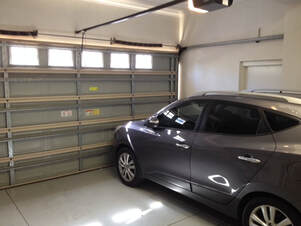 Considerations for your garage include:
Case study: The main bedroom of one house was situated immediately above the double garage. The floor of the bedroom was often warm from the garage below which made the bedroom extra warm in summer. One would think that this would be a bonus in winter, but of course garages usually don’t hold heat for very long in winter. As mentioned above the garage doors are poor insulators so in cool climates the garage can quickly become colder than the rest of the house. Consideration could be given to using a heavier better insulated door and sealing gaps around the door, especially if you’re planning on working in the garage often. You could install extractor fans to get rid of the warm air in summer, and they are also essential if the work you do in the garage generates fumes and gasses. ConclusionGarages can be a valuable addition to your home, but often they're an afterthought and poorly planned and located. It's important to get your garage right, where it won't spoil your home, and so that the garage suites your vehicles and your needs.  For more valuable tips and advice read: 'An Introduction to Building and Renovating Houses - Volume 1 Hiring Contractors, Managing Construction and Finishing Your Home' and 'Volume 2 Finding Your Ideal Property and Designing Your Dream Home' This is an extract from: 'An Introduction to Building and Renovating Houses Volume 2' by Paul Netscher. Available in paper or eBook from Amazon.com, Amazon UK, Amazon CA, Amazon AU and all online bookstores. To read more © 2019 This article is not to be reproduced for commercial purposes without written permission from the author. Your dream home could turn to a nightmare if it's built in the wrong place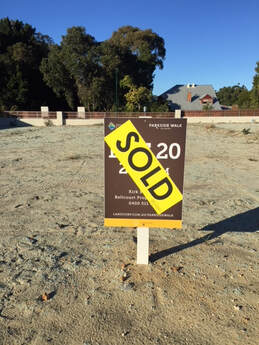 If you’re going to build a new house it’s important to select the best property. Often people buy land for their dream house only to find that they haven’t done their research properly and there are unforeseen costs, or the property isn’t suitable for their needs, or the area’s character is changing, or isn’t as expected and it isn’t such a desirable place to live. Buying land is a major investment. There are often transaction costs and fees to pay, so it isn’t as simple as making the wrong purchase from the shops and being able to take it back for a refund. In this case, selling a property that’s unsuitable will almost certainly lead to large additional wasted costs. It’s essential not to purchase on impulse, but rather to do your homework and fully investigate various aspects and characteristics of the land before purchasing the property. A neighbourhood could be quiet with little traffic on the weekend when you visit, but during the week it could be completely different, with no parking available in the street, busy roads, traffic congestion and noise. In fact, even during the course of a weekday the streets can change, being quiet in the middle of the day and then busy at peak hours. But properties can even change with the seasons. That brilliant view could be blocked out when the trees are covered in leaves in summer, or your nice sunny piece of ground could be in the shadow of the neighbouring buildings in winter when the sun is lower on the horizon. Location – the right location for youThe common saying ‘location, location, location’ means that selecting the right location is the most important part of buying a property. So properties located on busy streets, or next to industrial areas, perhaps neighbouring shops and restaurants, maybe overlooked by apartment buildings, those that are in undesirable neighbourhoods, or those that have unpleasant noisy neighbours aren’t going to be desirable locations. If a property appears to be a bargain, understand why it’s a bargain, what does the seller and others know that’s not immediately apparent to you. Obviously properties that are in leafy, friendly neighbourhoods, with quiet streets, near parks, with easy access to schools, shops, transport networks, recreational facilities and work opportunities are usually desirable locations. These ideal locations are often in short supply, meaning that they’re more expensive. The thing is that in the future they’ll be even harder to find, which will ultimately increase their value. But, it’s important to understand that a good location shouldn’t be impacted by ‘snob value’. Far too often we allow ourselves to be influenced by what others in our family and community think. Do your own research. Be prepared to look beyond the areas you’re familiar with. Take time to visit different suburbs and towns, get an understanding of what’s available and what the costs are. A location that isn’t seen as the best location right now, because it’s older, or less ‘upmarket’, may be about to change. Often older areas go through a period of regeneration and suddenly property values increase when it’s perceived to be the new desirable location. However, older areas could also go the other way, where they become rundown, dilapidated and even overtaken by crime. New transport networks, schools and other facilities can quickly turn an area into a desirable location. Buying into these areas before the rush can mean you’re purchasing property that will rapidly increase in value. It’s important to understand what’s happening in areas and what the plans are. Understand what your priorities are, and those of your family. What lifestyle are you looking for? That desired location that many hanker after might not actually be the right location for you. We are all different, with differing needs and desires. Understand what's important for you and your family when choosing land. Start with the right location, suburbs and neighbourhoods and work from there. Always be open to other possibilities and areas you aren’t familiar with. In future articles we will discuss what to look for when looking for your ideal piece of ground to build your new house. Know which aspects of the property could add to your construction costs. Be aware of how the land could influence your new home's design. Understand what's important to you and your family.  Thinking of buying a property and building your dream home? Don't be a victim of a poor decision. Educate yourself and know what to look for when purchasing a property. Read 'An Introduction to Building and Renovating Houses - Volume 2 Finding Your Ideal Property and Designing Your Dream Home' © 2019 This article is not to be reproduced for commercial purposes without written permission from the author. Will you want to hire your building contractor after speaking to their clients? Image courtesy of stockimages at FreeDigitalPhotos.net Image courtesy of stockimages at FreeDigitalPhotos.net Over the last few weeks we've looked at a number of serious building defects which have left home owners distressed, out of pocket, and sometimes without a home. Many home owners face the prospect of lengthy legal battles to recover money spent on fixing building problems. This included the horror story of a major UK builder who delivered hundreds of substandard homes. Another article on an Australian apartment that cost $1.7 million which isn't fit to live in a year after completion, and more. In other articles I've discussed how you can ensure you are hiring the right building contractor. These articles include Read this before selecting you home building and renovation contractor and Before employing a building contractor ask these questions. To ensure you employ a reputable building contractor it's important to ask your contractors for a list of references of past clients and projects. What building projects have they worked on? Are these similar to the work you are asking them to execute? Were these projects completed successfully - finished on time, without fuss and of good quality? But don't just take the contractor's word for it, rather talk to these past clients and ask them these important questions:
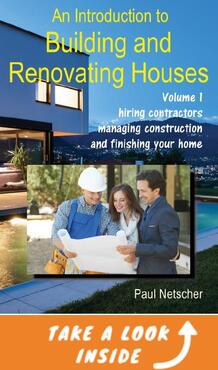 This is an extract from my new book 'An Introduction to Building and Renovating Houses: Volume 1 Hiring Contractors, Managing Construction and Finishing Your Home' which also contains lots more valuable information to save you money and ensure that your home build or renovation project is a success. Click on the image to read a preview on Amazon. The book is available in paper or ebook form from Amazon and other online stores, or ask your local bookstore to order a copy for you. For tips on designing your new house as well as renovation ideas read Volume 2 - Finding Your Ideal Property and Designing Your Dream Home © 2019 This article is not to be reproduced for commercial purposes without written permission from the author. Are you always tired, perhaps you have a rash or breathing problems - it could be caused by your home Image courtesy of Phaitoon at FreeDigitalPhotos.net Image courtesy of Phaitoon at FreeDigitalPhotos.net The air we breathe could have a severe impact on your health and the health of your family. Some homes have poor air quality. This could be caused by a variety of problems including:
Ensure your home is safeThere are many fumes from everyday building and household products which can cause breathing difficulties, allergies, and even some products that are linked to cancer, learning difficulties, sleep disorders, Alzheimer, and dementia. Your health is important, don't take risks with it. Understand the products you are using and ensure all rooms in your house are well ventilated. For more on the impacts of poor air quality read this BBC article Why Indoor Air Quality Matters to our Bodies and our Brains.  Design your home so that it's safe for you and your family. For more home design tips and insights read An Introduction to Building and Renovating Houses Volume 2 - Finding Your Ideal Property and Designing Your Dream Home © 2019 This article is not to be reproduced for commercial purposes without written permission from the author. |
AuthorI’m a construction professional, author of several successful construction management books, and a home owner. I’ve made mistakes in construction management, I’ve seen others make mistakes, but importantly I’ve had multiple successful construction projects and I’ve learned from the mistakes. I want to share these lessons and my knowledge with you. Also available from:
Amazon Au, Amazon DE, Amazon ES, Amazon CA, Amazon IT, Amazon FR, Amazon NL, Amazon India and 'An Introduction to Building Houses - Volume 2 Finding Your Ideal Property and Designing Your Dream Home'
Archives
July 2024
CategoriesWe welcome genuine comments, especially comments that add additional information to the subject matter in the article. We however reserve the right to remove inappropriate comments, which includes comments that have nothing to do with the subject, comments that include inappropriate language, and comments that are an advertisement for a product or company, or which include an advertising link. Comments must be in English. We will not enter into discussion on why a particular comment was removed.
|



 RSS Feed
RSS Feed


